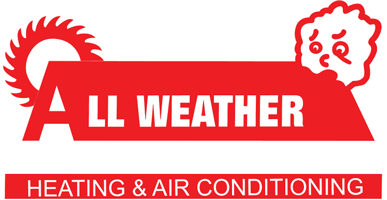Completing the search for your first home is an exhilarating experience. You’re likely juggling a dozen things or more to ensure you’re making the right choice. We believe that understanding your potential new HVAC system is vital. The property’s HVAC system represents a significant investment and potential source of long-term costs, illustrating why a detailed inspection should be a top priority for first-time homebuyers.
In the following guide, we’ll outline seven tips for learning everything you can about a home’s heating and cooling setup. And if you want a deeper opinion from the pros, don’t hesitate to contact All Weather Heating & Air Conditioning Inc. Our experienced team can help you compare your options with industry insights that are second to none.
1. What Type of HVAC System Is It?
Start by identifying what kind of HVAC system the home includes. Furnaces tend to last longer than air conditioners, and some of the latest types of HVAC equipment like heat pumps boast average life spans that are impressively long. Tracking down the make and specific model ensures you have a clear understanding of how much maintenance it will require.
2. What Is the Current System’s Age?
It’s just as smart to learn how old the HVAC system is when you’re considering a new home. On average, HVAC systems tend to run for about 10-12 years. Knowing when it was installed helps you anticipate future maintenance needs or considerations if it might eventually stop working. Older systems are at a higher risk of problems, so fiscal planning for a replacement unit could be necessary sooner than you thought.
3. Is the Warranty Still in Effect?
Don’t forget to look into whether the HVAC system is still under warranty. If it is, that’s great news because it can lighten the load for maintenance expenses. HVAC warranties typically include parts and labor, but it’s important to note that details will vary. Don’t forget to look into any terms you don’t recognize to ensure you understand your coverage and potential out-of-pocket costs.
4. Does the System Have a Documented Maintenance History?
Don’t forget to check the maintenance history of the HVAC system, if the records are accessible. This kind of information can reveal if there have been regular problems or how much upkeep was provided. Inquire about key tasks like filter changes, which can indicate it received regularly scheduled tune-ups.
5. What Are the Energy Efficiency Ratings?
Purchasing a home with a heating and cooling system with great energy efficiency can lead to lower utility bills and a smaller environmental impact. Check out the seasonal energy efficiency ratio (SEER) ratings for air conditioning and the annual fuel utilization efficiency (AFUE) for furnaces. High SEER ratings mean more efficient cooling throughout the season, while strong AFUE ratings mean the fuel is efficiently converted into useable heat.
6. Can You Spot Trouble During Your Inspection?
Even without heating and cooling expertise, it’s still a good idea to check out the HVAC system on your own. Watch closely for potential issues that haven’t been mentioned by the seller. This might consist of odd sounds, unequal airflow and attempts to cover up any serious damage.
7. Is an Experienced HVAC Technician Available to Help?
If you’re not quite sure about the overall state of the HVAC system, it’s never a bad idea to get an assessment and recommendation from certified HVAC professionals. They can spot things you might miss, including leaking coolant, damage to the wiring or flawed ductwork.
A Call with All Weather Heating & Air Conditioning Inc Helps Take the Stress Out of Your Home-Buying Journey
Selecting your first home ought to be exciting, and All Weather Heating & Air Conditioning Inc will do everything possible to ensure that doesn’t change. Get in touch with us at 256-801-4701. We can go over the details about how our HVAC services help make this process smoother, giving you what you need to dive into home-ownership with confidence.
